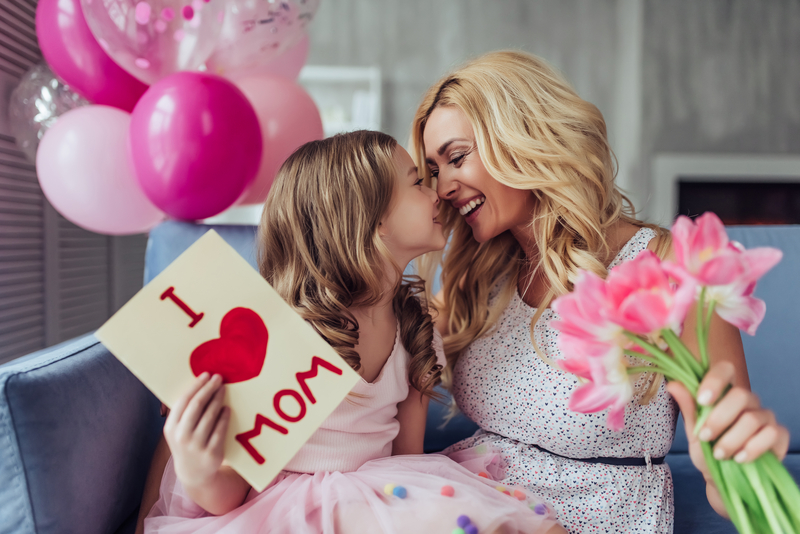Fragrant Therapy: Boosting Your Mood with Floral Beauty
Posted on 22/08/2025
Fragrant Therapy: Boosting Your Mood with Floral Beauty
The enchanting aroma of flowers has captivated humanity for centuries. Beyond their vibrant colors and stunning shapes, flowers possess powerful fragrances that can significantly influence our mood and well-being. Welcome to the world of fragrant therapy, where the simple act of enjoying floral scents can become a transformative experience for both mind and soul.
What Is Fragrant Therapy?
Fragrant therapy, often referred to as floral therapy or flower scent therapy, is the practice of using natural flower aromas to enhance emotional health and mental clarity. It draws on the principles of aromatherapy, combining the beauty of nature with therapeutic techniques. Whether it's a bouquet of fresh flowers, scented oils, or floral-infused skincare, the uplifting effects of these aromas are supported by both ancient wisdom and modern science.
The Science Behind Floral Fragrances and Mood Enhancement
Why do some scents instantly make us feel happier or more relaxed? The answer lies in the way our brains process aromas. When aromatic molecules from flowers enter our nose, they interact with the olfactory system and trigger the limbic system in the brain, an area responsible for emotions, memories, and behaviors.
- Lavender is known to reduce stress and promote better sleep.
- Roses evoke feelings of love and comfort, enhancing self-worth.
- Jasmine uplifts the mood and can even act as a mild antidepressant.
- Ylang-ylang relieves anxiety and encourages optimism.
- Geranium balances hormones and fosters emotional stability.
Scientific evidence suggests that natural flower scents can lower cortisol levels, reduce heart rate, and enhance serotonin production--key factors in achieving a more balanced mood and brighter outlook.

Top Floral Scents for Mood Boosting
Let's delve into the most popular flowers used in fragrant therapy and discover how each scent can impact your well-being.
1. Lavender: The Calming Classic
Perhaps the most well-researched floral scent, lavender stands out for its calming properties. Clinical studies confirm that inhaling lavender essential oil or enjoying fresh lavender bouquets can significantly reduce anxiety, lower blood pressure, and help with insomnia. Perfect for bedrooms and relaxation spaces, lavender supports inner peace.
2. Rose: The Comforting Heart Opener
The intoxicating scent of rose has long been associated with romance and affection. More than that, it's a powerful emotional healer, known to decrease feelings of grief and promote joy. Rose aromatherapy is often used in self-care rituals for its gentle, nurturing touch.
3. Jasmine: The Energizing Uplifter
Need an instant pick-me-up? Jasmine flowers offer a sweet, exotic fragrance that stimulates positivity and awakens the senses. Used in both perfumes and teas, jasmine is valued for its ability to fight depression and invigorate tired minds.
4. Ylang-Ylang: The Optimism Booster
Warm, slightly fruity, and wonderfully complex, ylang-ylang can melt away worries and spark joy. It helps balance emotions and is especially valued in fragrant therapy for alleviating mood swings and restoring emotional harmony.
5. Geranium: The Harmonizer
With its rosy, green scent, geranium helps create a sense of stability and joy. It's an excellent choice for anyone seeking equilibrium, particularly during times of stress or hormonal changes.
Other Mood-Enhancing Floral Fragrances:
- Peony: Gently lifts low spirits and inspires hope.
- Orange blossom (Neroli): Relieves nervousness and induces calmness.
- Lily: Provides tranquility; ideal in meditation spaces.
- Violet: Softens anger and soothes emotional tension.
How to Use Floral Beauty for Fragrant Therapy
There are countless creative ways to add floral therapy to your daily routine. With a touch of imagination, you can infuse your home, office, and self-care rituals with the healing power of flower scents.
Fresh Flowers in Living Spaces
A bouquet of freshly cut flowers not only beautifies your home but consistently uplifts the mood of everyone in the space. Place vases in high-traffic areas or on your desk for a constant aromatic boost.
- Try mixing colors and varieties for visual interest and layered scents.
- Change water and trim stems regularly to keep flowers fresh and fragrant.
Floral Essential Oils for Aromatherapy
Diffusing essential oils is the most efficient way to enjoy the mood-changing effects of floral scents. Use an ultrasonic diffuser or add a few drops to your bathwater, pillow, or pulse points.
- For better sleep: Lavender and camomile essential oils.
- For focus and energy: Jasmine and neroli work wonders.
- For relaxation: Rose, geranium, and ylang-ylang are ideal.
DIY Potpourri and Flower Sachets
Create your own scented sachets or homemade potpourri by drying petals from your favorite flowers. Add a few drops of essential oil for a long-lasting fragrance. Place these sachets in drawers, wardrobes, or under pillows for ongoing mood-lifting effects.
Floral Baths
Turn your bath into a fragrant haven by adding petals of rose, jasmine, or lavender. This classic self-care practice combines the soothing properties of warm water with the benefits of floral scent therapy, ensuring both body and mind emerge rejuvenated.
Personal Care with a Floral Twist
Use floral-infused skin and body products, such as rose water toners, lavender lotions, or geranium soaps. These not only nourish the skin but offer aromatic stress relief with every use. Even a few drops of essential oil on a cotton pad tucked into your bag can be a portable fragrant therapy.
The Psychological Benefits of Floral Fragrance Therapy
Reducing Stress and Anxiety
Exposure to flower scents has a profound impact on the nervous system. Regular use of fragrant therapy can:
- Lower stress hormone (cortisol) levels
- Ease feelings of overwhelm or panic
- Create a tranquil, spa-like environment anywhere
Enhancing Concentration and Mental Clarity
Certain flower scents, including lily and jasmine, have been proven to sharpen focus and improve cognitive performance. Having a scented candle or oil diffuser in your workspace can make you more productive while feeling more balanced.
Lifting Depression and Enhancing Joy
Aromatherapy using floral beauty has been shown to activate pathways in the brain responsible for happiness and motivation. Scented environments foster positive, optimistic thinking, especially during the winter months or periods of low energy.
Supporting Emotional Connections
Flowers are universally recognized symbols of compassion, love, and friendship. Bringing floral scents into shared spaces or gifting them to a loved one can strengthen emotional bonds, open hearts, and encourage a sense of togetherness.
How to Personalize Your Fragrant Therapy Experience
There's no one-size-fits-all approach to floral fragrance therapy. Each person's sensory preferences and emotional needs are unique. Here's how to design your own blend of mood-boosting flower scents:
- Identify your emotional goals. Do you want calm, energy, or joy?
- Experiment with different flowers. Attend a local florist or garden and test various scents.
- Mix and match floral notes. Blend lavender and geranium for relaxation, or rose and jasmine for both comfort and vitality.
- Notice your reactions. Keep a journal about your moods after exposure to different scents.
Fragrant Therapy Beyond the Home
The benefits of floral scent therapy don't stop at home. Here are creative ways to incorporate the healing power of flowers into all parts of your life:
- Workspaces: Small vases of fresh blooms or discreet essential oil diffusers at your desk boost morale and reduce work-related stress.
- Car journeys: Floral air fresheners transform your commute into a more peaceful experience.
- Yoga and meditation: Sprinkle petals on your mat or diffuse flower oils to deepen relaxation and mindfulness.
- Special events: Weddings and gatherings filled with floral fragrances create memories tied to joy and celebration.

Frequently Asked Questions about Floral Therapy
-
Can I benefit from floral fragrances even if I have allergies?
Yes. If fresh flowers trigger allergies, opt for high-quality essential oils or floral hydrosols, as these typically contain fewer allergens. -
Are floral scent therapies safe for children and pets?
Generally, natural flower scents are safe, but always check for toxicity. For example, lilies can be harmful to cats. Stick to gentle, broadly compatible scents such as rose and lavender. -
Are there side effects?
In rare cases, people may experience headaches or irritation from overly strong aromas. Start with small doses and ensure proper ventilation. -
Can I use artificial floral scents?
Natural flower essences and pure essential oils are preferred, as artificial fragrances may contain chemicals that do not offer the same emotional or health benefits.
Conclusion: Embrace Floral Beauty for a Happier, Healthier Life
Fragrant therapy is more than just enjoying pretty flowers--it's about creating environments and moments that elevate your mood, enrich your life, and foster emotional resilience. By thoughtfully incorporating flower scents into your routine, you tap into the ancient wisdom of nature's pharmacy, unlocking a reservoir of joy, calm, and inspiration.
So the next time you pass by a blooming garden, receive a bouquet, or light a floral-scented candle, pause and breathe deeply. Let the beauty and fragrance of flowers work their gentle magic, uplifting your spirit--one breath at a time.
Start your fragrant therapy journey today and experience the wonders of floral mood boosting firsthand!
Latest Posts
A Dozen Long-Lasting Blooms for the Enthusiast
Fragrant Therapy: Boosting Your Mood with Floral Beauty
Master the Art of Hydrangea Care for Stunning Garden Views
The Enchanting Allure of Red Roses on Valentine's Day
Gaining Deeper Understanding Through Your Birth Flower's Symbolism





